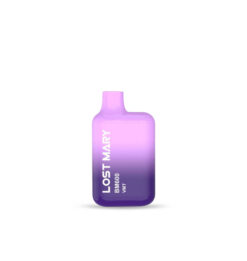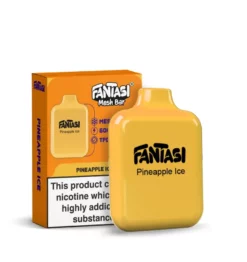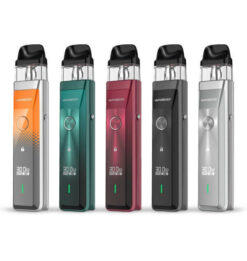The past few months have had no shortage of uncertainty, turbulence and confusion while efforts to fight COVID-19 continue. But recent research has turned its head to an unlikely potential hero: nicotine. It can’t be denied that the tobacco-derived stimulant has a bad reputation, though a little more reading into the topic reveals a whole host of benefits that are rarely publicised due to its addictive nature and association with smoking. Nicotine Replacement Therapy (NRT) for starters, has been shown to be of great benefit to ex-smokers. More than 100 controlled trials that tested nicotine replacement therapy as a cigarette quitting technique and the benefits discovered, saw the World Health Organisation consider it an ‘essential medicine’. The role of vaping in COVID-19 infection rates is still largely unclear, but the lack of a cure or effective treatment has led novel research to be indicative of some ground-breaking foundations for future study.
Where Is This Coming From?
COVID-19, as we all know by now, is a respiratory virus – inevitably meaning that regular cigarette smokers risk a 14% greater chance of being infected, as a result of impaired lung function, greater risk of additional respiratory infections and generally having their hands near their face more than non-smokers. Some outlets, though, have reported positive effects on COVID-19 infection rates among smokers, but we should emphasise that at the time of writing, research is largely contradictory, and smoking should never be advised in immunity efforts or otherwise. In fact, the supposed ‘positive’ effects of smoking on coronavirus have actually been noted in nicotine alone, which of course exists freely of its dangerous neighbours contained in cigarettes. While research is still ongoing and with conflicting outcomes, we wanted to look into the claims being made and what they mean for the vape community.
Early May saw France enforce a nicotine product purchasing limit to prevent stockpiling following a Paris-based study that a substance in tobacco may be preventing COVID-19 infection. Theorising that the substance mentioned is indeed nicotine, the secondary troubles associated with smoking tobacco can be avoided by way of other methods of nicotine consumption. With their findings being reviewed by esteemed neurobiologist, Jean-Pierre Changeux, further speculation was considered as to whether nicotine protected against the virus through way of blocking COVID-19 from reaching the body’s cells.
Following speculation by Welsh scientists in January 2020 (prior to the mass lockdowns we’ve come to know and endure), stimulant use in coronavirus treatment is being considered for formal testing. This comes after positive results in COVID-19 patients known to regularly smoke, that were put on NRT when hospitalised at the Royal Glamorgan. Regular smokers had previously been noted to experience worsened lung injury following nicotine withdrawal, but the preventative NRT successfully resolved this and also may have lessened the general, expected inflammation of the respiratory system.
A summary of the research:
Based on the limited, ever-developing research available, no advisory action should be taken as a result of the works mentioned. Smoking is never advisable, and while COVID-19 research with regard to vaping is also lacking, vaping can provide a safer solution for your nicotine consumption. The findings presented here show that nicotine can be successfully used as a supplementary stimulant in cases of coronavirus in smokers. Nicotine in such cases is thought to prevent the immune system being overburdened as a result of the virus, which had been documented in severe cases.
Ultimately, research into NRT in non-smoker/vaper cases is required and being planned to coincide with other nicotine-based studies occurring globally. Don’t get excited yet, there’s a lot of work to be done! But this could be the start of a new era of respiratory research, which we think is quite exciting.
Is vaping nicotine harmful?
The majority of the harmful and cancer causing chemicals are those that are mixed in with cigarettes, not the nicotine itself. Whilst nicotine is a highly additive chemical and we would never recommend it to anyone who wasn’t a past smoker, vaping nicotine is at LEAST 95% safer than smoking traditional cigarettes. Nicotine Replacement Therapies (NRT) are being actively used and promoted by the worlds major health organisations including the UK’s National Health Service (NHS) as the best way to quit smoking for good. It has also been reported by the NHS that there “is good evidence that e-cigarettes are helping smokers to quit. To date, nearly 3 million smokers have used e-cigarettes, and over half are now smokefree, contributing to at least 22,000 additional quitters a year.” Vaping nicotine as a NRT is now becoming the most successful ways to quit smoking.
What you can do.
Our knowledge of Covid-19 is constantly on the increase. Our prior research with other coronavirus diseases, noting that there has been 5 other human coronaviruses before, has early evidence that suggests that smokers may be more susceptible to serious illness, may be at an increased risk of contracting the virus, and that smokers are more likely to develop severe disease from COVID-19 than non-smokers. Further, in hospitalised patients with COVID-19, smoking was also associated with increased severity of illness and death.
There has never been a more important time to quit smoking.
If you would like any advice on quitting smoking, or how vaping can help you quit for good, we implore you to contact us. The Vapoholic team is made up of ex-smokers and we know the trials and tribulations of quitting smoking, but more importantly…
We know how to quit for good!
For a full and unbiased review of vaping and how it impacts your health, take a look at our Vaping Health Facts Guide.
[starbox]




